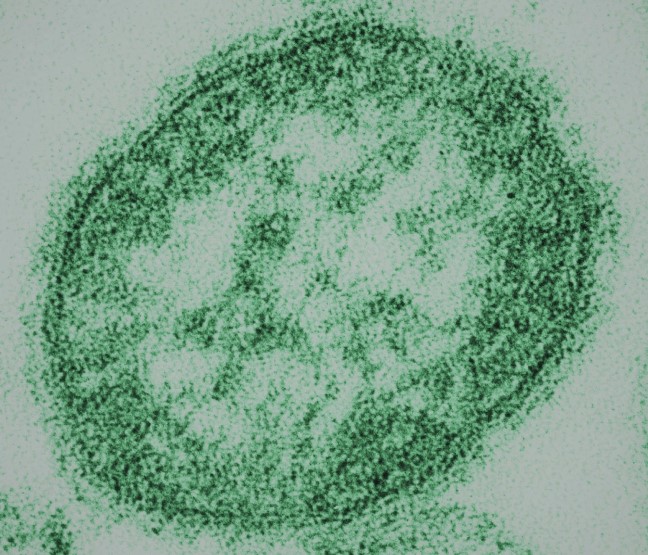Measles is a highly infectious and communicable disease that is most often contracted in childhood. The infective particle is a ribonucleic acid (RNA) virus—specifically, a paramyxovirus belonging to the genus Morbillivirus. Infected individuals display a number of primary symptoms: a fever lasting for a few days; cough; conjunctivitis, which makes the eyes appear red and swollen; Koplik's spots, which are small white lesions on the cheek inside the mouth; and a maculopapular rash of red spots that begins on the head and spreads to the rest of the body. See also: Infection; Infectious disease; Measles; Paramyxovirus; Ribonucleic acid (RNA); Virus; Virus classification

However, a more serious and lingering effect is taking place as well. A significant issue concerning measles is its ability to compromise the immune system of patients. Individuals who are recovering from a measles infection often suffer setbacks in the effectiveness of their respective immune systems. In fact, scientists recently determined that a measles infection may lead to serious long-term effects that eliminate the memory of the immune system. This "immune amnesia," as researchers refer to it, causes immune suppression, or the loss of immunity, in which the immune system of the body no longer recognizes pathogens that the body had encountered previously and had fought against successfully. In other words, the measles virus may cause the removal of preexisting antibodies that had protected patients from other or recurring illnesses. Thus, patients would potentially be newly vulnerable to infection by pathogenic microorganisms that the body had previously abolished and that had posed no further threat to the body. For example, if an individual had contracted mumps prior to getting measles, he or she may be susceptible to getting mumps again. See also: Antibody; Immunity; Immunology; Mumps; Pathogen
In two investigations that studied the antibody repertoires of 77 unvaccinated children before and two months after exposure to and infection by the measles virus, the measles infection caused the elimination of up to 73% of the antibody repertoires of these individuals. However, immune amnesia was not permanent. After the children's natural reexposure to pathogens, researchers detected their recovery of antibodies. Importantly, though, at least two to three years were necessary for restoration of the protective immune memory of many of the infected individuals included in the studies. This delay in immune-system recovery points to an even greater importance of the need for measles vaccination. Because the measles virus typically infects 90% of exposed individuals within unvaccinated populations, vaccination is a key preventive tool. Moreover, not only does the measles vaccine work to prevent the measles disease, but the vaccine also helps to prevent the loss of immune-system memory, which could occur if individuals were infected by the measles virus. See also: Biologicals; Vaccination





